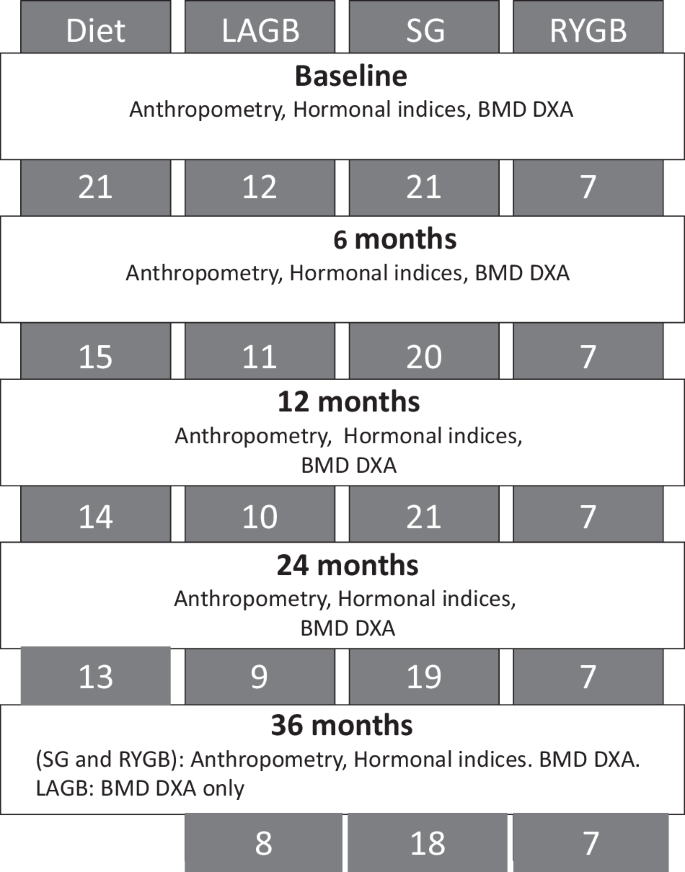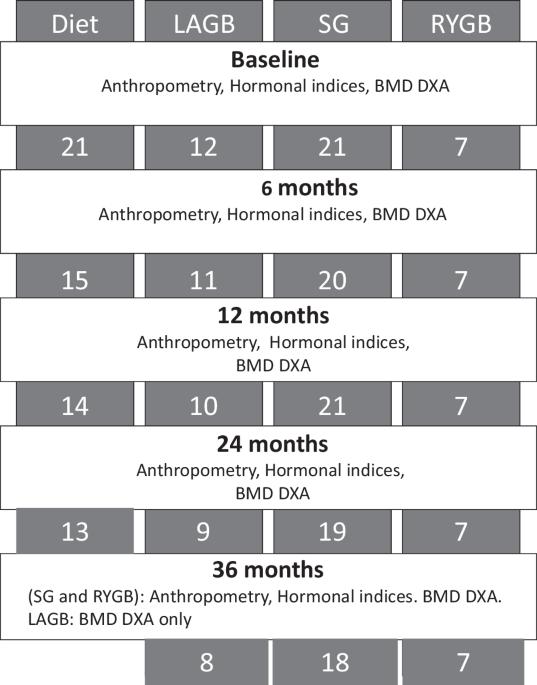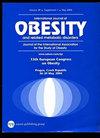睾酮对长期减肥的反应存在性别差异。
IF 4.2
2区 医学
Q1 ENDOCRINOLOGY & METABOLISM
引用次数: 0
摘要
目的:肥胖引起的性腺功能障碍是寻求减肥干预的患者中常见的合并症。我们研究了三年内减肥对男性和女性性腺轴的增量效应。我们比较了饮食干预(减肥)和减肥手术对性激素的影响:Roux-en-Y 胃旁路术 (RYGB)、袖状胃切除术 (SG) 和腹腔镜可调节胃束带术 (LAGB)。其他分析还评估了减肥干预后促皮质素、促体液素和甲状腺轴的变化:这项前瞻性观察研究纳入了 61 名体重指数大于 30 kg/m2 的成年人,他们的平均年龄为 51(SD = 11)岁。在基线和 36 个月的 6 个时间点测量了内分泌参数:结果:从基线到 36 个月期间,体重每减轻 1 千克,男性总睾酮增加 0.6% (95% CI: 0.2%, 1.0%, p = 0.002),女性总睾酮减少 0.8% (95% CI: -1.4%, -0.3%, p = 0.003)。在控制了女性的年龄和绝经状态后,这些变化仍具有显著的统计学意义。在 36 个月时,与饮食组相比,RYGB 女性的总睾酮降低了 54% (95% CI: -90%, -17%, p = 0.004),游离雄激素指数 (FAI) 降低了 65% (95% CI; -114%, -17%, p = 0.009),而 SG 的 FAI 降低了 39% (95% CI; -77%, 0%, p = 0.05)。男性受试者的组间差异并不明显。肾上腺皮质激素下降了 0.3% (95% CI: 0.0, -0.5%, p = 0.05),胰岛素样生长因子-1 增加了 0.4% (95% CI; 0.2%, 0.7%, p = 0.005):结论:本研究中观察到的睾酮变化与体重下降量成正比。在女性中,雄激素的减少与年龄和绝经状态无关,在减肥手术后更为明显。这一研究结果值得进一步临床研究,以探讨雄激素减少对绝经后女性功能和认知状态的影响。所观察到的垂体激素变化可能有助于减肥手术对新陈代谢的益处。本文章由计算机程序翻译,如有差异,请以英文原文为准。


Sex-differential testosterone response to long-term weight loss
Obesity-associated gonadal dysfunction is a common comorbidity in patients seeking weight loss interventions. We examined the incremental effect of weight loss on gonadal axes in men and women over 3 years. Changes in sex hormones were compared between dietary intervention (Diet) and bariatric procedures: Roux-en-Y gastric bypass (RYGB), sleeve gastrectomy (SG) and laparoscopic adjustable gastric banding (LAGB). Additional analysis assessed changes in corticotropic, somatotropic and thyroid axes after weight loss interventions. This prospective, observational study included 61 adults with Body Mass Index >30 kg/m2, mean age 51 (SD = 11) years. Endocrine parameters were measured at baseline and at 6 timepoints over 36-months. For each 1 kg of weight lost, between baseline and 36 months, total testosterone increased by 0.6% (95% CI: 0.2%, 1.0%, p = 0.002) in males and decreased by 0.8% (95% CI: −1.4%, −0.3%, p = 0.003) in females. These changes remained statistically significant when controlled for age and for menopausal status in females. At 36 months, in comparison with Diet, RYGB women had lower total testosterone by 54% (95% CI: −90%, −17%, p = 0.004), reduced free androgen index (FAI) by 65% (95% CI; −114%, −17%, p = 0.009) while SG had reduced FAI by 39% (95% CI; −77%, 0%, p = 0.05). No such differences between groups were noted for male subjects. Adrenocorticotropic hormone declined by 0.3% (95% CI: 0.0, −0.5%, p = 0.05), insulin-like growth factor-1 increased by 0.4% (95% CI; 0.2%, 0.7%, p = 0.005), without such thyrotrophin change for each 1 kg of weight loss, for entire cohort, over 36 months. The testosterone changes observed in this study were proportional to the amount of weight loss. In females, reduction in androgens was independent of age and menopausal status and more pronounced after bariatric procedures. This study finding warrants further clinical research to explore an impact of androgen reduction on functional and cognitive status in postmenopausal women. The observed changes in pituitary hormones may contribute to the metabolic benefits of bariatric surgery.
求助全文
通过发布文献求助,成功后即可免费获取论文全文。
去求助
来源期刊

International Journal of Obesity
医学-内分泌学与代谢
CiteScore
10.00
自引率
2.00%
发文量
221
审稿时长
3 months
期刊介绍:
The International Journal of Obesity is a multi-disciplinary forum for research describing basic, clinical and applied studies in biochemistry, physiology, genetics and nutrition, molecular, metabolic, psychological and epidemiological aspects of obesity and related disorders.
We publish a range of content types including original research articles, technical reports, reviews, correspondence and brief communications that elaborate on significant advances in the field and cover topical issues.
 求助内容:
求助内容: 应助结果提醒方式:
应助结果提醒方式:


